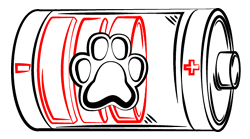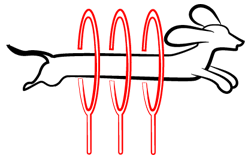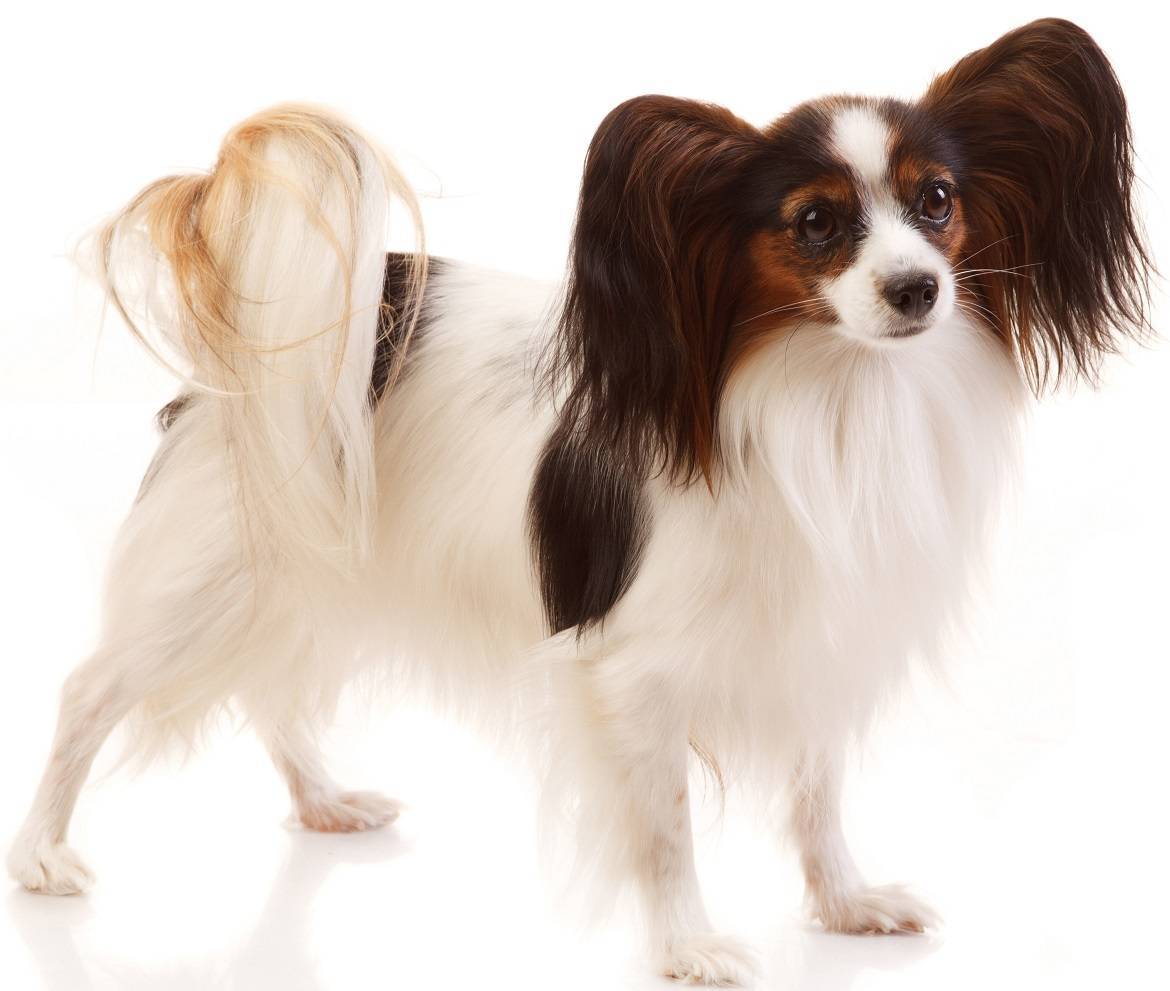
Paws ‘N’ Pups Quickview
Size
| Energy Level
| Trainability
| Paws ‘N’ Pups Rank
|
Characteristics
| Physical Characteristics: Height: 8-11” Weight – Females: 7-9 lbs. | Male: 8-10 lbs. Energy Level: Moderate – High | Colors: The American Kennel Club recognizes the Papillon in the following colors:
|
Health & Longevity
Average Life Span: 13-15 years
Papillon pups are pint-sized, cheerful little purebreds that have overall good health. But there are a few serious health conditions that plague the breed. However, not all Papillon pups will develop a health issue in their lifetime. It is important to keep up-to-date on vaccinations and routine vet check-ups, as these appointments give your vet ample opportunities to examine your pup for any prevalent health concerns.
For example, some Papillon dogs are prone to skin allergies, causing itchiness, blotchy skin, redness, and infection. Your vet will be able to examine your pup at the first sign of an outbreak and treat an allergic reaction before it becomes worse. The same goes for many other health conditions that are prominent in the Papillon breed.
Progressive Retinal Atrophy
This condition, a birth defect, begins with degeneration of the retina in both eyes. It is incurable, and it worsens with age, resulting in complete vision loss for both the nighttime and daytime. Symptoms include constant pupil dilation and disorientation.
Intervertebral Disc Disease
This condition, most common in small dogs, occurs when the cushions between the vertebrae bulge outwards. It causes nerve damage, severe pain, and paralysis in some cases. Surgery is required to remedy this condition. If left untreated, this condition could progress to a dangerous, life-threatening point.
Other health problems that your Papillon might suffer from include Von Willebrand’s Disease, patellar luxation, rapid dental decay, and obesity. There are also the usual illnesses that can affect any dog of any breed, such as heart disease and some kinds of cancer. The average Papillon lives a lengthy, healthy life between 13 to 15 years. But there have been a few cases where a pup has lived to 17 years old.
Temperament & Train-ability
Naturally gentle, lively, and friendly, the Papillon would make one of the best family pets, especially for families with children and other dogs. These pups are non-confrontational and affectionate, even towards most strangers. Most Papillons are clever, playful, and protective, so they would definitely bark if they felt threatened by an intruder. However, it would be best to rely on other pups to be watchdogs, as these purebreds would rather be sleeping with you at nighttime.
While it would be a good idea to take these pups for a couple of short walks at least twice a day, the Papillon is a dog that would be just as happy snuggling on the couch for the afternoon. Their exercise needs are minimum, but they would love a quick romp and play in the backyard with your youngsters and other pups.
Papillons are clever, agile, and alert with an innate eagerness to please their loved ones. Training sessions are easier with these pups than most other dogs because these purebreds pay close attention and grasp instructions quickly. The only training challenge you may face is housebreaking your Papillon. These purebreds love tricks and learning new ways to show their playful side to their loved ones, but house-training isn’t any fun to them. Make it fun for your Papillon with lots of praise, encouragement, and meaty, bite-sized rewards.
Grooming
Lengthy and silky, the coat of the Papillon is low-shedding and quick to grow. Brush your Papillon 3-4 times a week with a soft to medium bristled brush. Bathe your Papillon once a month when she gets dirty or smelly. Or, take her to a professional groomer for a package of a bath, brush, and trim on a monthly basis.
Other basic care needs for a Papillon include brushing her teeth once a day, clipping her toenails every 3-4 weeks, cleaning her ears once a week with a cotton swab and warm water, and trimming her fur once every 6-8 weeks.
Diet
Due to their small stature, the Papillon needs a nutrient-rich diet to keep their little body energized and healthy. Divide ¾ to 1 cup of dry, high-quality kibble into 2-3 meals per day. The separation of individual meals will keep your pup satisfied and full throughout the day. And it also eliminates the possibility of food aggression between dogs. The Papillon loves treats, like any pup, but make sure they are bite-sized indulgences. Big treats pose a choking hazard to small dogs.
Looking for a Papillon?
 Find A Papillon Breeder |  Papillon Puppies For Sale |  Adopt A Papillon |
Cost
Papillons are popular breeds because of their sweet nature and loving manner. Therefore, there is no shortage of Papillon breeders. However, make sure you ask to see health histories of both parents, as well as AKC documentation of the pup, before you invest in a breeder. Many breeders are trustworthy and reliable, but you have to weed out the ones who are only in the business for the money, not the health and care of the purebred.
When you find a compassionate, reputable breeder, expect to shell out between $600 to $850 for a Papillon puppy. AKC-registered and show-quality puppies will generally cost more because bloodline guarantees are expensive.
Before you invest in a breeder, take a look through your local animal shelter. Or, give your local rescue group a call. There is an abundance of Papillons abandoned each year. And many of them still need good, happy homes. If you can give one of these pups a second chance at a loving environment, expect adoption fees to be between $75 to $250. With vaccinations, spay or neuter services, and an initial vet visit, that fee will likely rise to between $400 to $500.
Paws ‘N’ Pups Ranking
Paws ‘N’ Pups ranks every breed out of 4 with 1 being easiest to integrate into your life and 4 being the toughest – The lower the ranking the better.
Ranking takes into account a few basic factors including cost, skill level needed, high vs low maintenance and how critical regular training is to success. As far as family pets go, the Papillon is one of the best. This fact earns the pup a solid 1 on the integration scale. These purebreds have a natural eagerness to please their loved ones, which makes training easier. Their grooming regime is easy too, making the upkeep of the Papillon simple and doable for anyone.
Breeds Similar To Papillon
 Affenpinscher |  Japanese Chin | 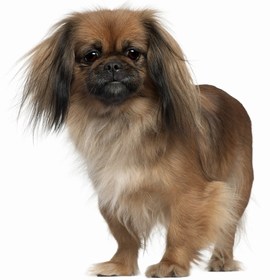 Pekingese | 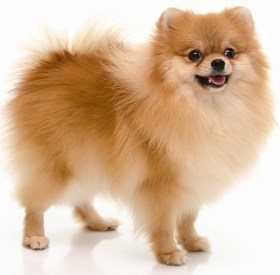 Pomeranian |


